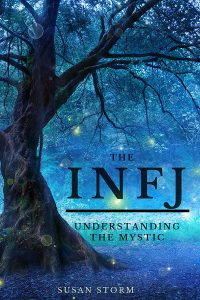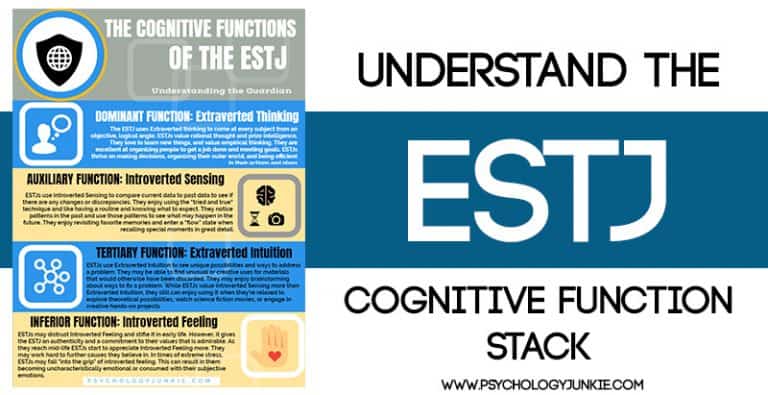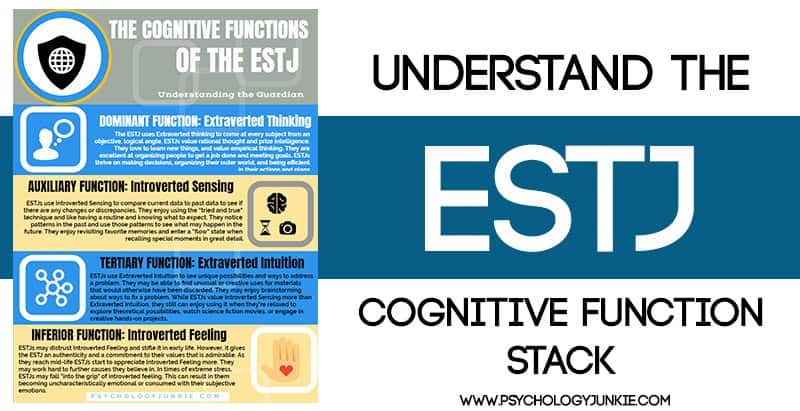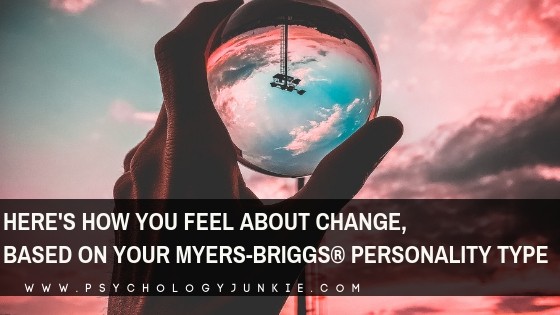10 Things You’ll Relate to If You’re an INFJ
INFJs are one of the more misunderstood personality types out there. While there is an abundance of articles written about them, very few are highly accurate. As an MBTI® practitioner I’ve found that the INFJ is one of the most frequent types that other people mistype as, and as a result, there’s a lot of misinformation being spread around about the type. What is it really like to be an INFJ? What are some characteristics they nearly all share? That’s what this article will address!
Not sure what your personality type is? Take our new personality questionnaire here. Or you can take the official MBTI® here.

P.S. If you want even more in-depth information on INFJs and relationships, careers, parenthood, and more check out my eBook: The INFJ – Understanding the Mystic
10 Things You’ll Relate to if You’re an INFJ
#1 – I get “flashes” of insight that seem to appear out of nowhere
No, I’m not a psychic, but I frequently get sudden images or insights in my mind that reveal how something will play out or the implications of a decision or plan. Why does this happen? My brain is constantly synthesizing information that I pick up through my inferior function, Extraverted Sensing (Se). It combines this information with unconscious data and symbolic images that have been stored away in my mind. This process of synthesizing information is done nearly unconsciously, which means that when I get a sudden epiphany, I don’t always know where it came from or why.
#2 – I believe nearly everything is more complex than it seems
I don’t take anything at face value. Like an onion, everything in life has many, many layers and deeper meanings. I’m always trying to find out what that deeper meaning is and get to the most hidden layer. I enjoy complexity and I’m even disappointed when something turns out to be especially simple or obvious.
#3 – I’m highly strategic
A lot of INFJ descriptions talk about our feeling tendencies, and while those are certainly a major part of our personalities, our strategic skills are often ignored. I get hunches or insights into a future possibility or likely outcome and then I work my way backwards to see how to reach that. I’m very good at envisioning a goal and figuring out how to get there. I’m quick to pick up on implications, possible roadblocks, and the best routes to take to reach a future idea or possibility.
#4 – I dislike repetition and prefer to find new ways to do things.
Doing things repeatedly in the same fashion makes me feel bored and irritated. I want to find new ways to do things, experiment with a new path, and pioneer a new road rather than follow the beaten path. I need chances to be creative, innovative, and experimental.
#5 – I tend to procrastinate
Yes, I know, I know, I’m a J type. That means I should be super decisive, right? Wrong. I have to know the implications, nuances, and the long-range scope of a problem before I’m ready to move forward on it. I’m actually a dominant perceiving type (my dominant function is Introverted Intuition, a perceiving function). While I enjoy having closure on major decisions, I also need plenty of time to really think something through and foresee how it could play out before I decide to take action. That said, when I do make a decision, I’m usually very certain about it.
#6 – I take on other people’s feelings
I have this weird, sometimes frustrating ability to “feel” what other people feel many times. When I’m with someone who’s sad I feel sad, when I’m with someone who’s happy, I feel happy. Sometimes it feels beyond my conscious control. This is one of the reasons I really want the environment I’m in to be harmonious and I try very hard to make sure the people in my life are cared for.
#7 – I’m an introvert, but that doesn’t mean I hate people
I care deeply about others, and while I need frequent alone time, I still want to connect deeply with my fellow humans. I enjoy one-on-one deep conversation and I want my goals to have a positive impact on humanity. I believe that a good life is one that improves the lives of others.
#8 – I have random bursts of impulsivity
Most of the time it’s difficult for me to act in the moment and be totally spontaneous, but every once in awhile, especially when I’m stressed, I get the urge to be wildly impulsive. Sometimes this is good and I do something really freeing like skydiving or telling someone how I really feel about them. Other times this can be a bad thing and I do something physically risky or make a rash, thoughtless decision.
#9 – I feel responsible for the feelings of others
I feel it’s my duty to take care of the needs of my family and close friends. It’s hard for me to put myself first because I usually think of what everyone else needs first. If someone I care about is hurting or in pain I can’t rest until I’ve figured out some way to help them or show them I care.
#10 – I’m obsessed with theories
The more abstract and complex the theory is, the more I’m drawn to it, like a moth to a flame. I enjoy analyzing, categorizing, and deciphering the accuracy of these theories, but I’m also good at seeing inconsistencies and throwing out theories that don’t add up. The reason this is so appealing to me is because I get to use my dominant function, Introverted Intuition (Ni), and my tertiary function, Introverted Thinking. Being able to use both at the same time often feels comfortable and creative and fun for me. Sometimes I can take this too far, though, and get stuck in “hyper-analysis” mode and not want to leave my room!
What Are Your Thoughts?
Do you relate to these INFJ tendencies? Share your thoughts with other readers in the comments! Want to explore a truly in-depth look at the INFJ personality type? Check out The INFJ – Understanding the Mystic in our shop!
Other Articles You Might Enjoy:
10 Stress-Busting Tips for INFJs
10 Things You Should Never Say to an INFJ
Understanding INFJ “Grip” Stress
Get Your Free INFJ eBook
As a thank you for subscribing to my newsletter I will send you this free eBook PACKED with self-care tips, creativity hacks, and more! You'll also get a 3-day email course for understanding your personality type better!













#1 – yup. It’s weird
#2 – hahaha yes. I sometimes have trouble when something really is simple because I’m trying to figure out what the other layers are and there aren’t any
#3 – this one isn’t as strong for me. I want to work on it
#4 – and this is why I’m always trying new recipes
#5 – this confused my ENFP boyfriend so much. “You’re a J-type – why can’t you make the decisions?!”
#6 – sometimes I’ll think I’m having a bad week and then I’ll realize it’s not anything going wrong in my life. It’s the people around me
#7 – I discovered I need less introvert time than I thought when I was house sitting for a week alone. I started actually calling people on the phone and asking them to visit me (one at a time, though – let’s not get too wild)
#8 – I wish I actually acted on these more often
#9 – ugh, yes
#10 – me too
I have been amazed after reading about INFJs on this site. I was identified as an INFJ by a former employer who, I believe, used these analyses to ensure we occupied positions that would best utilize our strengths and avoid strong use of those areas where each of us was weak. However, no information was provided about how our personality type impacted on our needs, differences from others, special challenges, and overall well being.
I feel , after reading your materials , that I finally understand myself. I so totally match the feelings, preferences, activities, actions, challenges, and insecurities of an INFJ that I was actually shocked when I first read these descriptions. That there are other people who often feel as I do and suffer from the same weaknesses while experiencing the same strengths (notice I didn’t say “enjoying” or “recognizing” the same strengths) is actually comforting! It helps me feel less isolated, alone, and even perhaps at times, unstable. Rather, it frees me to be braver about sharing my artistic and literary creations without being in fear of others’ judgments and criticisms.
Spot on. This is deeply insightful and helpful. And so accurate. I feel understood!
I’m so glad Shelby! Thanks for letting me know!
#5, exactly why I didn’t think I was an INFJ for all those years. Such a misconception ! We totally procrastinate
🙂 Yes! This is a big one…the J/P preference confuses people, because people associate procrastination with perceiving. Because INFJs are perceiving-dominant (leading with intuition rather than a judging function) they’re kind of torn between typical perceiving and judging traits and not all those judging stereotypes won’t apply!
#1 had me tear up it was so on point for me. Most of these were so spot-on. I’m thankful this was written so I can now understand why I see some things out of nowhere an fit plays out (not in the same way I saw it), years later.
This is where I get confused. I have, after many years (!) of researching, narrowed down my type to either being INFJ or ISFJ. My first ever test result was INFJ, but I’m just not sold on the idea that I lead with introverted intuition — mainly because I don’t understand introverted intuition! BUT … #1 is very true to my life: however, these flashes don’t happen often. Yet, when they do, I trust them entirely. It’s like a privileged, instantaneous “knowing” that I must act on right away (but it’s different from impulsiveness, which I am prone to at times. This “knowing,” however, helps me clear up muddy matters, to put it mildly.). As well, getting psychodynamic therapy in my 20s changed my life. I had no idea there was so much of the unconscious inside me, just sitting there placidly, not piping up very often … but I realized that it is actually ever-present, although a faint little whisper that always seems to pull me somewhere else. And it’s funny — because when I’m faced with a dilemma or big decision to make (or conflict to sort out), I do not stress, because without even articulating the problem inside my head or out loud, I know that eventually a solution will reveal itself. But when things are going along as usual and nothing too pressing is bothering me, I live in a state of mild anxiety. Like, I’m forgetting something or ignoring something important. It’s almost like a feeling of vague doom.
The reason I think I could alternately be ISFJ is really due to my near-photographic memory about people. It’s not as great as it was when I was younger, but it’s pretty impressive to others. But the other ISFJs I know are less “spacey” than I am, or appear to others, and they seem to have absolutely no doubt about who they are, whereas I haven’t decided yet — but I am always, always searching for myself. But I actually don’t think of myself as spacey, but I will admit that I definitely lack that more direct relationship that sensors have with their world. (My house stays a mess, etc.) And yet, I do notice things in my environment all the time that my Ne husband misses. Then again, I think these things I notice might have more to do with the details of a person than environmental details. He seems to miss everything!
Anybody relate to my tedious rambling? Or can anyone offer any insight? Thanks!
I can relate wholeheartedly with #1. Whenever I am faced with a big decision, dilemma, or conflict, I just relax and wait for a dream or mental image to give me the answer. When I get the flash, I trust it entirely. But funny enough, when everything is going along as normal, I feel anxious, like I have overlooked something that will get me.
I am still undecided about whether or not I am ISFJ or INFJ. First test I ever took yielded INFJ, but I didn’t trust it because of INFJ being such a rare type. But I see such stark differences between myself and my ISFJ co-workers. They are so much more sure of things, sure of who they are, etc. Their self-awareness is kinda envying! They also are skinnier, more concerned with style, decor, neatness. I am less put-together, but I do somewhat prefer it that way, since the ISFJs sort of seem burdened by their own self-imposed self-denial. They’ll go work out or skip the office cake on the regular while seemingly miserable about it, unable to let themselves cut loose once in a while.
I guess my biggest hold-back is this: Can you actually lead your life with introverted intuition and not even be aware of it?
You can hardly live your life without being aware of your introverted intuition unless you don’t know the meanings of the word and don’t know that people live & think differently.
I relate to everything except boredom to routines, or the need to be experimental (that’s because I might have a little bit of Asperger Syndrome). Everything else describes me to the point. I never really understood myself until I found out I’m an INFJ, or let’s say, I didn’t understand myself in relation to others. After that, everything in my life made sense, and I really think it’s the case with many INFJ’s , or at least Introverts, when finding out your personality type. And finally I realized I’m not bad, or hate people, or am unhospitable, or or or…. but I am just me, with faults, but definitely with great love to other people, but at the same time, mainly living in my head analyzing every single detail of life, and hating every conflict and wanting everyone to be happy.
Great, great article, Susan! I relate to every one of them . I am always looking for the “bottom line”. And taking the road less traveled to do it. Problem solving? Yup, that’s me out in the cattails looking for solutions in all the obscure places. Something different and original for a solution. Often building on works of others to build a new creative answer. I had ia litter of puppies get sick once. I spent 4 years and literally 10,000 hours of research creating a new innovative way to raise healthy puppies. Evidence-based , and it worked when I bred my next litter after completing the protocol. My Dad was a brilliant rocket scientist.and mathmatitian. I remember him trying to teach me algebra. He showed me how to do parts of it and I replied somthing to the effect of, “wait, let’s try it another way instead. “. He was frustrated I was wanting to reinvent the mathmatical wheel. Seemed logical to me!
I know what you mean. I used to drive my ex-husband crazy–he is a biologist and very fact centered–by saying that facts can change. But they can, of course, as more data become available. As to algebra, when my son was in eighth grade, he was placed in pre-algebra, and his instructor had the class doing logic problems–analyzing data to reach certain conclusions about specifics. I’d help him with them. One day, he said to me, “I’m always scared in class that the teacher is going to call on me to explain one of those problems you help with.” “Why?” I said. “Are we getting them wrong?” “No, we always get them right, but you solve them completely backwards and upside down from the way she does.” Honestly, I learned to do equations by reading Batman comic books in which he entered a negative universe where everything was backwards.
This is soo true of our personality type. Often times than not I find myself asking “what if?” questions to anything I learn.
Definitely me. People can often get really angry with me for “thinking I’m some sort of prophet or something with special insight,” so I feel as though I often can’t talk in conversations. They want a highly detailed proof for my assertion, and I’m just like, “well this one thing and that one thing combined with this other one thing combine to build a framework that works for all the details.” They rejoin, “Prove it.” I can’t. I just know. I can feel myself storing up details that don’t fit the framework, like a person who presents as very wonderful, but there are these little things that don’t fit. Eventually, one more detail will show up that shows, “Aha, I knew something was wrong, and now everything suddenly fits together.” I remember showing up to class to find everyone studying hard. I asked why. One of the other students told me the professor had given the earlier class a pop quiz. I “knew” we would not have one that day, and I “knew” the day we did have one.
My last job was thoroughly draining for me. I found myself over and over trying to prove that I am strategic and not simply emotional. There was a lot of conflict and stress among my teammates, so in meetings, I found it really hard not to take that on. I would find myself quivering internally with other people’s emotions. Then, when I was continually overlooked for strategic commities, my own emotions were stirred up, but I wasn’t sure why until I was able to get space to think and talk with trusted others. When I finally realized what was troubling me, I approached the team and told them. I got, “You’re not really strategic; you’re more visionary.” And “If you want us to see you as strategic, stop being emotional.” When I suggested actually dealing with the conflicts instead of ignoring them, so I could stop picking up on all the emotions surrounding me, they told me I was imagining problems when there were no problems. One woman told me, “I am not emotional, and I just don’t get you.” I thought, “You are radiating emotions nonstop, and I merely reflect them back to you.” Every posture she used in meetings radiated tension.
I definitely wanted to harmonize the environment. I did somewhat. I just “knew” what was needed, and I was right, but I was frustrated, because no one recognized that nor saw it as valuable. When I asked permission to harmonize the team, I was told to write up what I would do and someone else would lead it. I was at a complete loss. Write up what I would do? I don’t know what I would do. I would just know in the moment and do it. I have tried to tell others what to do, but that never worked.
I remember once talking to a boss and mentioning that there were a lot of factions and gossip. He merely looked at me and said, “I’ve heard gossip about you too.” I was baffled. If he knew about it, why wasn’t he doing anything about it? Strategically, you get a lot farther if you have healthy morale. It seems as though an interest in taking the time to build a healthy team proves to many that you don’t care about the goals of the organization. To me that is also baffling. It is more strategic to have lower production temporarily if it means you will have more productivity in the long run.
I have never thought of myself as obsessed with theories. I find myself impatient with theories, because so many are impractical and don’t hold up. I get really frustrated when I see people holding onto theories which produce really great results temporarily. They will say, “I haven’t conquered this one problem, but I will.” I can look back on all the times when others have tried the same strategy and reached the same impasse. I want to say, “You are missing the same thing all these others missed, but this one person solved it with this.” However, I have already heard them insist many times that the “this” that the other person did is worthless because of such and such problems. Yes, both are worthless on their own, but combined, they balance out and yield better results.
If I could choose one word for what I seek, it would be balance. I don’t really put myself last in caring for people’s feelings, unless I am super stressed. Then a bit of martyr complex comes out, but it is more that I can’t bear any more conflict at the moment than a martyr complex. Generally, I give so much, and you give so much. I get really stubborn when someone insists that I give everything while they give nothing. I move into, “thus far and no farther.” If a new person joins the group, I feel that the group itself must change. If it remains static, then the new person had to do all the adapting, and there is no balance in that. The new person wasn’t really allowed in as herself. Each person in the group will shape the group to an extent and be shaped by the group to an extent. Balance! That is beautiful. I love the changing dynamics of groups as people come and go and move within the group. It is beautiful, and at times frustrating and hard. Nonetheless, it is good. But when a group becomes rigid or the group is defined entirely by one person, that is hideous, and I get stuck.
I can’t relate to any of these, is it possible that I have some other type of personality?
These are all mainly stereotypes, you can be Ni- Fe and not be the stereotype of an infj or any other personality type 🙂 i suggest you research cognitive functions and type yourself from those.
This is me 100% Sometimes it’s hard to understand my own self, and sometimes I can’t explain my own behavior to myself. No wonder others misunderstand us INFJs but that said I wouldn’t want to be any other personality in the world I absolutely love my abilities.
Wow, you get it. This was incredibly well put, you just expressed my feelings in such a perfect way
Thank you Alex!
Spot on!
Oh, my goodness!!! I relate to everything written here. Thank you for this insight.
Thanks for reading! Glad you could relate 🙂
Wow, you basically read my mind on every single point you spoke about!!
Thank you for finally creating FACTUAL data that TRULY represents INFJ’S. ☺
100% correct I feel as if you were solely writing /talking about me. If only others would read this maybe they would understand why I’m such a weirdo 😊. Thanks wishing everyone health and happiness. ✌🏻 CT